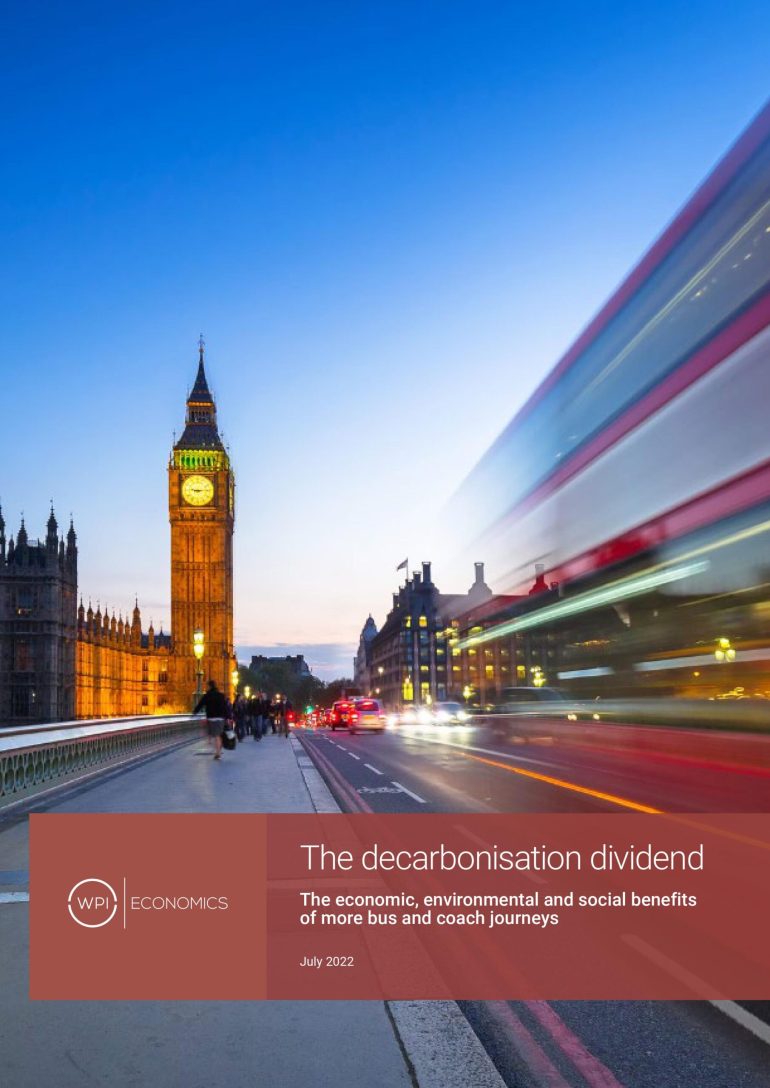
WPI Economics was commissioned by the Confederation of Passenger Transport, the trade body for the bus and coach industry, to analyse the role that switching car journeys to bus and coach journeys (“modal shift”) may have in achieving the country’s net zero emissions goal. This report summarises the result of the first stage of the project, demonstrating why modal shift is necessary to ensure a just transition to net zero and desirable for its multidimensional benefits, while the next report will assess different policy interventions to demonstrate that modal shift is possible.
Modelling three different scenarios with different scales of modal shift, all compatible with the Climate Change Committee’s Balanced Pathway to Net Zero, our central scenario estimated an increase of 80% in bus usage by 2050 relative to 2018/19 levels. Such shift to local buses would generate the following cumulative benefits by 2050:
- Savings of 15.8 million tons of CO2 – more than the total CO2 emissions of the North East in 2019;
- Improvements in air quality valued at £28m – enough to pay 800 nurses for a year;
- Health benefits valued at £14.9bn – enough to build 33 new NHS hospitals
- Socio-economic benefits derived from reductions in congestion valued at £29.4bn – more than the GDP of the city of Manchester in 2019.
